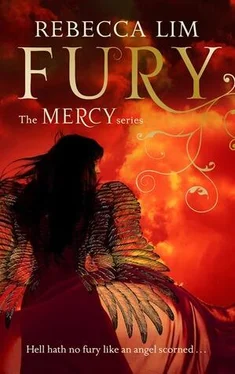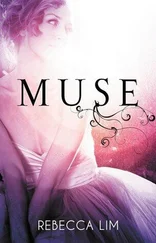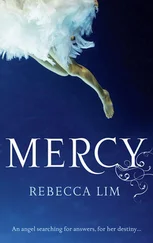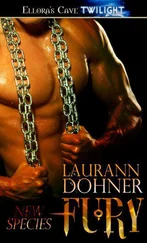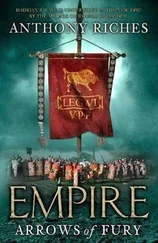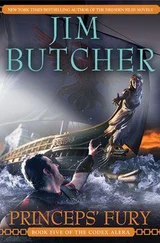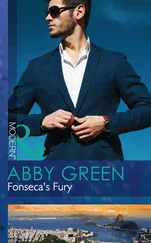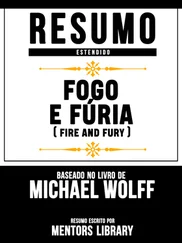The name makes me laugh out loud, and Ryan says curiously, ‘What’s so funny?’
I exchange conspiratorial looks with the bright-eyed, dusky-skinned children and try to keep my face straight as I reply, ‘Oh, they’re calling you Monkey Features — I think your grooming could use a little work.’
Ryan’s mouth falls open in surprise, then he screws up his face and lets his arms dangle down. He starts chasing the smaller children up and down the arcade, making monkey noises.
Uriel and I and the older girl look on, smiling. But then she claps her hands together, and we all stride out into the rain.
It beats down as if it will never stop. But the children pull us eagerly by the hands through the deserted streets, pointing out things they think we’d like to see, like special stones and good places to eat. The further we go past rain-soaked squares and quiet barrios , past glistening stone churches and the narrow, chaotic workshops of local craftspeople, the poorer and more crowded the neighbourhoods become. Finally, we reach a two-storey shophouse, where the baskets of local wares have been shoved in deep under the dripping awnings to keep their contents dry.
There’s no one inside the store, which smells of wool and tobacco and spices, soap and incense, bodies, dust and earth. The children take us up a narrow set of stairs at the back to an apartment with its front door thrown open. Beside me, Ryan’s breathing heavily and his face is streaming with sweat. With so many of us here, the tiny place — three, maybe four rooms in all — feels unbelievably crowded.
Ryan suddenly sags over at the waist, dropping the broken backpack on the floor at his feet. He stands there bent over and shivering, wheezing and wet through, his head hanging down, his elbows braced above his knees, oblivious to everything around him. I put a soothing hand on his back, but he doesn’t respond, almost gagging for air.
Uriel and I exchange glances. Then, together, we take in the people in the room the same way they’re studying us.
There are a couple of elderly women seated on a low, sagging velvet settee beside a radio that’s prattling loudly in Spanish. They wear the same colourfully embroidered skirts and short woollen jackets as the little girls do, and have skin like gleaming mahogany and grey hair wound into long, tight plaits. Their seamed fingers fly as they work at intricate pieces of knitting, their black eyes never leaving us.
Two men sit across the room either side of a round, wooden table, small glasses of a cloudy green liquid in front of them, a deck of cards laid out between them. By the similarity of their looks and the degree of grey in the older man’s hair, I guess they must be father and son.
I get a glimpse of a woman — maybe the younger man’s wife — momentarily framed in the doorway to what must be a kitchen, her eyes wide with surprise, before she moves out of sight, her long, full, red skirt, bordered in gold, twitching out of view.
Nobody speaks, until Uriel says quietly and politely in Quechua, ‘We are honoured to be among you.’
Then, suddenly, all the children are talking at once in their high, clear voices.
‘They fell from the sky!’
‘Upon the Plaza de Armas!’
‘Like Ayar Awqa!’
‘The woman is his sister!’
‘The sister of Ayar Awqa!’
The younger man snorts suddenly and points at Ryan, who is still struggling to get air into his body. ‘And this gringo ? He is like Ayar Awqa, too? The man can barely stand, let alone fly. He has soroche , the sickness all the gringos get. Look at him.’
The man searches out the oldest child with his eyes and beckons her forward. ‘Flor,’ he says sternly, ‘you were not raised to lie. Nor should you ever bring the gringos ,’ the word is said with disgust, ‘into our home. We are not exhibits. How we live is not for them to see.’
‘But, Papi,’ she says quietly, ‘we are not lying.’
She takes his hand, and he gets to his feet reluctantly and allows her to tug him in Uriel’s direction.
‘Look at the man and the woman, not the gringo ,’ she says. ‘Then look at us — at me, Luis and César, Ana, Gabriela, María.’
She takes her hat off and wrings the rain out of it onto the floor.
The man — compact, tanned, clean-shaven, his short black hair oiled back neatly — approaches us. He scrutinises Uriel, who stands there calmly in his designer-look clothing without hat, umbrella or baggage. The man looks up sharply into his face, reaches out to touch the skin of his cheek, then quickly withdraws his hand. He does not look at me, but his body language, his thoughts, are no longer unfriendly, only confused.
‘It must be some trick,’ he mutters, looking back at the older man seated at the table.
‘It’s no trick,’ the older man pipes up. ‘If the children say he is Ayar Awqa, and that one is the sister of Ayar Awqa, then who are we to deny it? They are our children, and they are good children. But that one is certainly a gringo , and if we do not get him some coca tea, he will be a dead gringo before he has even climbed Dead Gringo Pass.’ The old man throws back his head and laughs with his toothless mouth.
The young woman sweeps out of the kitchen, looking down shyly as she passes us, and hurries out the open door of the apartment and down the stairs.
When her footsteps have disappeared, the old man shouts in Quechua, ‘Welcome! Welcome! Siblings of the Great Owl. Pull up a chair and tell us what it is that you want with us, and we will do everything in our power to help you.’
‘A moment,’ Uriel tells the old man politely, then he turns to me and says in a fierce whisper, ‘As good-hearted as these people undoubtedly are, “pulling up a chair” is the last thing I have time for. I need to reach Machu Picchu now . Anything could have become of Gabriel in my absence. Let the mortals nurse Ryan back to health before he heads for home, but you and I cannot remain here drinking their tea. If it’s indeed true what Ryan said, that you slew those demons single-handed,’ I hear a disbelief in his voice that he’s unable to hide, ‘then I would welcome your aid in locating Gabriel. We fly in there, we take the place apart and we get out. Then you leave Gabriel and me to find the others.’
Ryan straightens slowly, pale-faced and holding his head. ‘Uh, wouldn’t they be expecting that?’ he wheezes.
‘Speak plainly,’ Uriel snaps, his dark eyes flashing.
‘They’ll be expecting you to, um, approach Machu Picchu — shit, in Peru, we’re in Peru ?’ He sees Uriel’s face and continues huskily: ‘They’ll be expecting you to go in in full celestial regalia with, uh, swords blazing. It’s what you guys do best. But it’s too … obvious, isn’t it?’
He turns slowly, wincing, his eyes struggling to focus on the local man standing beside us. ‘You trek to Machu Picchu, right?’ he says in English, the only language he knows. ‘I remember reading about it once. How long does it take, sir?’
The man looks Ryan up and down with his jet black eyes. ‘The Camino Inca takes many forms,’ he says in heavily accented English. ‘The Mollepata is the longest and hardest route. It would not suit everyone,’ he adds diplomatically. ‘But there is a trek that can take four days, and a trek that can take one. My cousin’s son is a guide. He can better answer you.’ He turns and says to his father in Quechua, ‘Go and fetch Mateo.’
The toothless old man snorts. ‘ You go and fetch Mateo, if Mayu has not already brought every one of our friends and relatives back with her. See, she returns now.’
More people spill into the room: handsome, black-eyed women, pretty children in colourful dress, work-worn men and older folk, until we are ringed around by their energy, by their curious faces. Several people touch their hands to Uriel’s briefly, almost reverently, and I hear someone exclaim, ‘How beautiful he is!’
Читать дальше
Конец ознакомительного отрывка
Купить книгу
